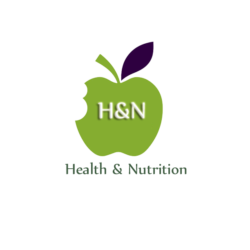Nutrition in Women’s Health
Introduction
Nutrition plays a crucial role in women’s health throughout every stage of life. From adolescence to menopause, the nutritional needs of women evolve due to hormonal changes, pregnancy, breastfeeding, and aging. Meeting these needs through a balanced diet can prevent various health issues and improve overall well-being. In this article, we’ll explore essential nutrients, common deficiencies, and dietary strategies that support women’s health.
Why is Nutrition Important for Women’s Health?
Women’s bodies undergo significant changes throughout their lives, particularly during reproductive years, pregnancy, and menopause. These changes affect nutrient requirements and influence how the body processes food. Proper nutrition can help women maintain hormonal balance, reduce the risk of chronic diseases, manage weight, and support mental and emotional well-being.
Key Nutrients for Women’s Health
1. Iron
Iron is essential for producing hemoglobin, which carries oxygen in the blood. Women are at higher risk of iron deficiency, especially during menstruation, pregnancy, and breastfeeding. Iron-rich foods include:
- Red meat
- Leafy greens (spinach, kale)
- Legumes (lentils, chickpeas)
- Iron-fortified cereals
2. Calcium and Vitamin D
Calcium is crucial for bone health, particularly as women age and face the risk of osteoporosis. Vitamin D is necessary for calcium absorption, making it essential for bone density. Key sources include:
- Dairy products (milk, yogurt, cheese)
- Fortified plant-based milks
- Fatty fish (salmon, mackerel)
- Egg yolks
3. Folic Acid
Folic acid (or folate) is essential for women of childbearing age to prevent neural tube defects in babies. It is also important for heart health and DNA synthesis. Foods rich in folic acid include:
- Leafy greens (spinach, arugula)
- Citrus fruits
- Fortified cereals
- Beans and legumes
4. Omega-3 Fatty Acids
Omega-3s support heart health, reduce inflammation, and may alleviate menstrual pain. These healthy fats are particularly beneficial during pregnancy, supporting fetal brain and eye development. Sources include:
- Fatty fish (salmon, sardines)
- Walnuts
- Flaxseeds
- Chia seeds
5. Magnesium
Magnesium is involved in over 300 biochemical reactions in the body, including muscle function, blood pressure regulation, and bone health. Women may benefit from magnesium for PMS relief and stress management. Foods high in magnesium include:
- Almonds
- Spinach
- Pumpkin seeds
- Whole grains
6. B Vitamins
B vitamins, especially B6 and B12, are essential for energy production, brain health, and hormone regulation. These vitamins also play a role in preventing anemia. Sources include:
- Whole grains (oats, brown rice)
- Poultry and eggs
- Fortified cereals
- Leafy greens
Nutritional Considerations for Different Life Stages
Adolescence
During adolescence, girls experience rapid growth, requiring adequate calories and nutrients to support physical development. Calcium, iron, and protein are particularly important for building strong bones, supporting menstrual health, and fueling activity.
Reproductive Years
Women in their reproductive years need a well-rounded diet rich in iron, folic acid, and healthy fats. These nutrients are essential for fertility, pregnancy, and hormonal balance. During pregnancy, calorie intake should increase to support fetal development, with a focus on nutrient-dense foods.
Menopause
Menopause brings hormonal changes that affect bone density, heart health, and metabolism. During this stage, women should focus on calcium, vitamin D, and phytoestrogens (plant compounds that mimic estrogen). Phytoestrogens, found in soy products, flaxseeds, and whole grains, can help alleviate menopausal symptoms like hot flashes.
Post-Menopause
After menopause, women face an increased risk of osteoporosis and heart disease. Prioritizing calcium, vitamin D, fiber, and antioxidants is crucial. Omega-3 fatty acids can support heart health, while antioxidants (found in colorful fruits and vegetables) reduce inflammation and protect against age-related diseases.
Common Nutritional Deficiencies in Women
1. Iron Deficiency
Iron deficiency anemia is common in women due to menstrual blood loss, pregnancy, and a diet low in iron-rich foods. Symptoms include fatigue, weakness, and dizziness. Eating iron-rich foods and pairing them with vitamin C sources (e.g., citrus fruits) can enhance absorption.
2. Vitamin D Deficiency
Vitamin D deficiency is prevalent in women, particularly those who live in regions with limited sunlight. Low levels of vitamin D can lead to weakened bones and an increased risk of fractures. Supplementation and sun exposure are essential, especially in older women.
3. Calcium Deficiency
Calcium deficiency is a concern, particularly for women over 50. Inadequate calcium intake can lead to osteoporosis, increasing the risk of fractures. Incorporating calcium-rich foods and supplements as needed can prevent bone loss.
4. Folate Deficiency
Folate deficiency is common in women of childbearing age, particularly if they don’t consume enough leafy greens or fortified foods. Supplementation is often recommended for pregnant women to prevent birth defects.
Healthy Eating Tips for Women
- Balance Macronutrients: Aim for a balanced diet that includes carbohydrates, proteins, and healthy fats. Whole grains, lean proteins, and plant-based fats should be a focus.
- Stay Hydrated: Drinking enough water is essential for overall health. Aim for 8-10 glasses per day, and increase intake during pregnancy or physical activity.
- Mindful Eating: Practice mindful eating to manage weight, improve digestion, and enhance emotional well-being. Avoid processed foods and sugary drinks, which can lead to energy crashes and weight gain.
- Manage Stress: Stress can affect eating habits and overall health. Incorporate stress-reducing activities like yoga, meditation, and regular exercise into your routine.
FAQs on Nutrition in Women’s Health
Q1. What is the best diet for women’s health?
A balanced diet rich in whole grains, lean proteins, healthy fats, fruits, and vegetables is ideal for women’s health. It should also include specific nutrients like calcium, iron, and folic acid to address women’s unique needs.
Q2. How much iron do women need daily?
Women aged 19-50 need about 18 mg of iron per day, while women over 50 require 8 mg. Pregnant women need 27 mg daily. Iron-rich foods and supplements can help meet these requirements.
Q3. Are supplements necessary for women’s health?
While it’s best to get nutrients from food, some women may benefit from supplements, especially for calcium, vitamin D, iron, and folic acid. A healthcare provider can recommend supplements based on individual needs.
Q4. How can women maintain bone health as they age?
Women should prioritize calcium and vitamin D intake, engage in weight-bearing exercises, and avoid smoking and excessive alcohol to maintain bone health. Post-menopausal women should monitor their bone density and consider supplements if needed.
Q5. What foods help with PMS symptoms?
Foods rich in magnesium, calcium, and omega-3 fatty acids can help alleviate PMS symptoms. Leafy greens, nuts, seeds, and fatty fish are good options to reduce bloating, mood swings, and cramps.
Q6. How can women manage weight during menopause?
Women can manage weight during menopause by following a balanced diet, engaging in regular exercise (especially strength training), and managing stress. Hormonal changes during menopause can slow metabolism, so portion control and mindful eating are essential.
Q7. How much protein should women consume?
Women should aim to consume 0.8-1.0 grams of protein per kilogram of body weight. Active women and those in pregnancy or lactation may need more. Protein-rich foods like poultry, fish, legumes, and dairy can help meet daily needs.
Q8. Can plant-based diets meet women’s nutritional needs?
Yes, plant-based diets can meet women’s nutritional needs with careful planning. It’s essential to ensure adequate intake of protein, iron, calcium, vitamin B12, and omega-3s through plant-based sources or supplements.
Q9. What role do phytoestrogens play in women’s health?
Phytoestrogens, found in soy products, flaxseeds, and legumes, can help manage hormonal imbalances, especially during menopause. They mimic the effects of estrogen and may alleviate symptoms like hot flashes and bone loss.
Q10. How much calcium do women need daily?
Women aged 19-50 need about 1,000 mg of calcium per day. After menopause, women should increase their intake to 1,200 mg to support bone health.
Conclusion
Nutrition is a cornerstone of women’s health, supporting everything from reproductive health to bone strength and mental well-being. By incorporating key nutrients like iron, calcium, folic acid, and omega-3 fatty acids into a balanced diet, women can meet their unique nutritional needs at every stage of life. Prioritizing whole, nutrient-dense foods and addressing potential deficiencies will promote optimal health, energy, and longevity.





One thought on “Nutrition in Women’s Health: Essential Nutrients for Every Stage of 1Life”